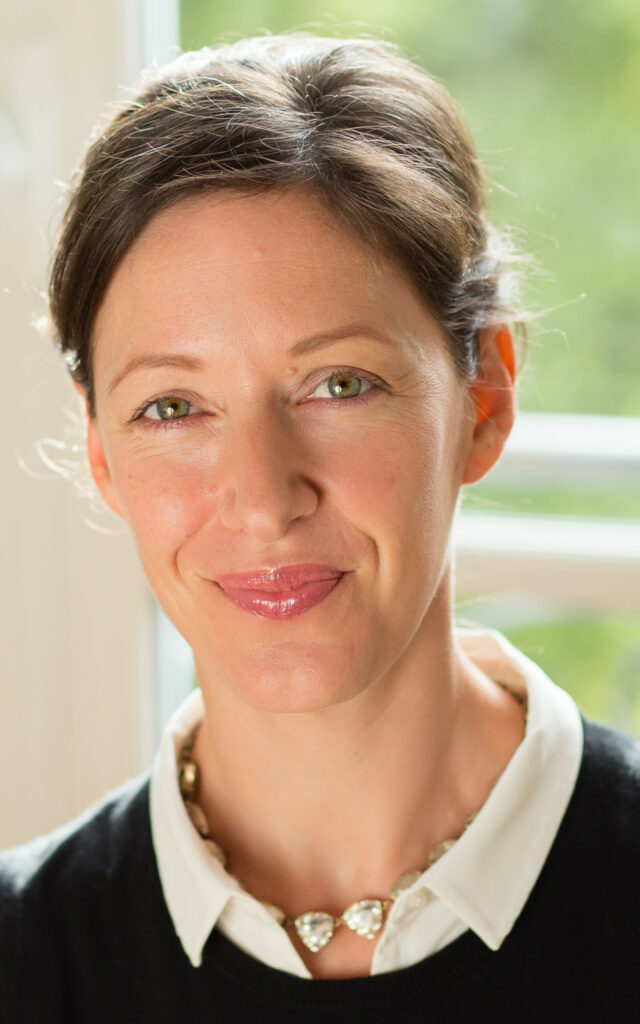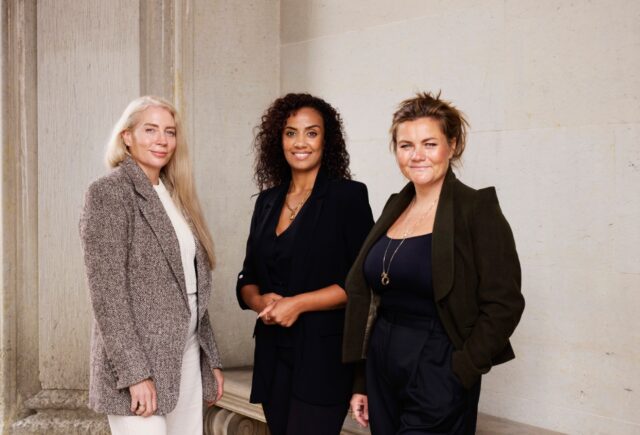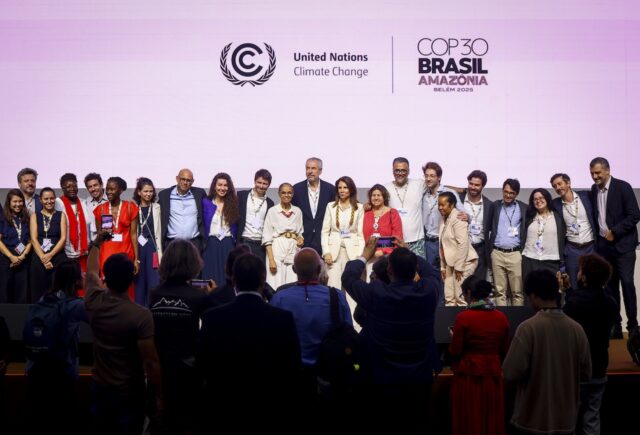Jane Ambachtsheer is marshalling her forces at BNP Paribas AM to incorporate sustainability across all its investments. She believes the financial sector has a huge amount of untapped influence on policymakers that it should use to combat climate change.

CV
- Head of Global Sustainability BNP Paribas Asset Management 2018-present.
- Partner and Chair Responsible investment Mercer Investments 2000-2018
- Analyst Hall International Partners 1997-9
- Consultant CEM 1996-7
- Master of Social Science, University of Amsterdam
- Economics/English Literature, York university
After eighteen years of developing sustainability policies at Mercer, a global consulting firm, Jane Ambachtsheer crossed to the other side of the table. In 2018, she joined BNP Paribas Asset Management (BNPP AM) as Head of Global Sustainability. She now has a chance to implement sustainability policies.
“It was the perfect next step for me. An opportunity to get closer to the money and to have input on how to exercise our ownership of companies,”
That ownership is significant. BNPP AM is a major player in European finance managing some €474bn globally.
The fact they were taking climate change seriously was something that excited her. “For so much of my career it was all about cajoling people,” she notes. Here she realised “I no longer need to cajole.”
Soon after Ambachtsheer arrived, BNPP AM committed to incorporating sustainability considerations across all of its investments – in all asset classes and geographies – by the end of 2020. It changed its self-description to ‘The sustainable investor for a changing world.’
Not without pride, she says: “we retired our sustainability transformation plan, because we met our goals. We had fifteen workstreams going for about 18 months, and we transformed everything from our research to our scoring platform.”
Ambachtsheer says that 84% of BNP AM’s open-ended funds are now officially classified as sustainable (i.e. meeting Articles 8 or 9 within the European Sustainable Finance Disclosure Regulations, ‘SFDR’). This involved a much tighter exclusion policy on coal companies.
“84% is not the limit, we plan to go further. We will go through fund by fund and see what’s holding each one back.”
She believes incorporating sustainability into the investment process is not detrimental to returns. On the contrary, it may enhance them as it allows fund managers to “play with a full deck of cards.”
Thought leadership
Thought leadership has always been important to Ambachtsheer – she coined the term ‘future maker’ at a 2015 Mercer’s seminar. It is, therefore, no surprise she is also marshalling a strong research team, believing it is “important to use research to create a forward-looking perspective.”
They have published a full sustainability report and important ‘roadmap papers’ such as one on biodiversity. She recently recruited Alex Bernhardt, who worked in Ambachtsheer’s team at Mercer’s. “He’s one of the most talented researchers I have ever worked with,” she says.
The three E’s: Energy, Environment and Equality
Ambachtsheer is known for “persuading without being pushy.” She says she nurtures a circle of interested fund managers, a “circle that is growing.” Managers commit to ESG, it’s in their objectives.
In a recent internal survey, when asked “is it important to you that we become a fully sustainable manager?” 94% of staff said yes. Ambachtsheer was delighted. “I was hoping for 60 or 70%. And it wasn’t just millennials who were keen – the responses from senior employees were the strongest.” She says she now has 150 “champions” across the business.
Ambachtsheer is keen to stress that BNPP AM was already a committed ESG investor before her arrival. “ESG priorities didn’t change,” she just “helped to crystallise them into deliverables.”
BNPP AM’s ‘Active Stewardship‘ policy has a focus on what Ambachtsheer calls the three ‘E’S – energy transition, environmental stability, and equality. “As a ‘future maker,’ we intend to use our votes to send a strong signal to companies regarding our expectation.”
This includes gender equality. The investment firm will vote against the entire board of directors in companies that do not have at least one woman on the board. It insists that 30% of boards should be women in Europe, North America, and Australasia. This will rise to 40% globally in 2025.
Building an in-house impact range
BNPP AM is running eight impact funds that focus on ‘solidarité’ in France. These include three in the ‘Multipar Solidaire Socialement Responsible’ range and ‘BNP Paribas Social Business France’ and ‘Social Business (Impact) France’.
A total of €2.8bn has been invested across the range in seven different types of business: those improving access to employment (such as Groupe La Varappe), education (Apprentis D’Auteuil), health (SIEL Bleu) and housing (Solifap), microfinance (Initiative France), sheltered living (Leopold Bellan) and energy transition/’responsible consumption’ (Terre de Liens).
“Our in-house range is something we are working on to build out further, but we are relatively cautious about what we deem to be ‘impact’. You have to have intentionality and measurability in reporting.”
A Tale of Two Mentors
Ambachtsheer says she has had two crucial mentors in her career. At Mercer, “Tim Gardener took me on, and we did pioneering work together in ESG scoring.”
“He was a friend and a mentor and really encouraged me when sustainable investing was something people were very sceptical about…he got it right away.” Gardener passed away in October and Ambachtsheer published a eulogy to him.
Ambachtsheer’s other mentor has been her own charismatic father Keith Ambachtsheer, author of Pension Fund Excellence, a well-known figure in the pensions world who emigrated from Holland to Canada.
He writes an influential investor letter ten times a year, which regularly touches on sustainable finance. Jane’s first job was at his pension consultancy CEM in Toronto, and she went on to open their office in Amsterdam. “We rarely disagree. We bring complementary elements,” she says.
Her father will no doubt be proud that Jane has already been given an SRI lifetime achievement award by the Canadian Social Investment Organisation. And she’s certainly not finished yet.
In 2005, Ambachtsheer was appointed as a consultant to the United Nations on the development of the Principles for Responsible Investment (PRI). She continues to be an active participant in a number of key industry initiatives, including as a member of the FSB Task Force on Climate-related Financial Disclosures, a Trustee of CDP (the Carbon Disclosure Project, – a not-for-profit charity that runs the global disclosure system for investors), and a member of the PRI Academic Working Group.
Ambachtsheer refers to this as her “acronym soup,” and admits that “of course there are limitations in what we can expect from global regulators.” But she says there is no alternative to working through global bodies to avoid “a lot of goodwill going off in too many directions.”
Investor lobby
In addition to what she can do in-house at BNPP AM, Ambachtsheer believes the financial sector as a whole has a huge amount of untapped influence on policymakers. “Think of all the thousands of well-paid lobbyists lobbying against doing anything about climate change. Who’s lobbying on the other side? It can and should be investors.”
She supports the investment letter to the G20 calling on governments to raise their climate ambition and implement meaningful policies to limit global warming to 1.5°C, committing to and achieving the net-zero emissions target by 2050. She also believes “biodiversity needs a Paris agreement.”
“The more we can push in the same direction in addressing global challenges, the further we will get,” she concludes.






